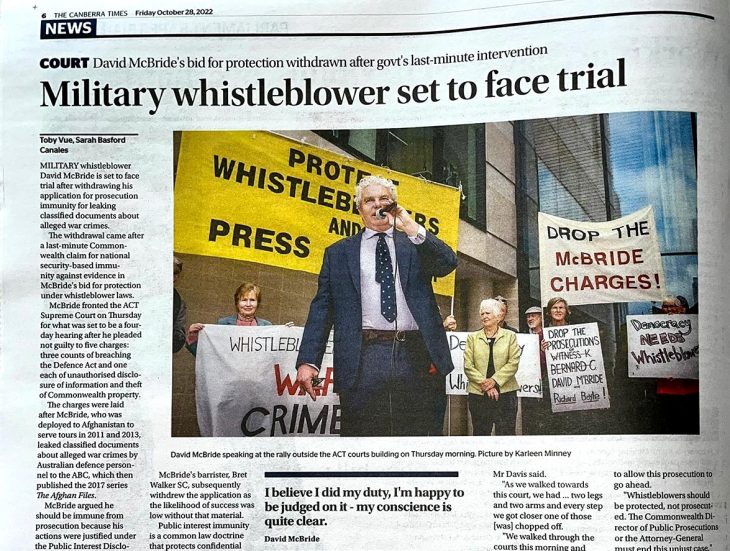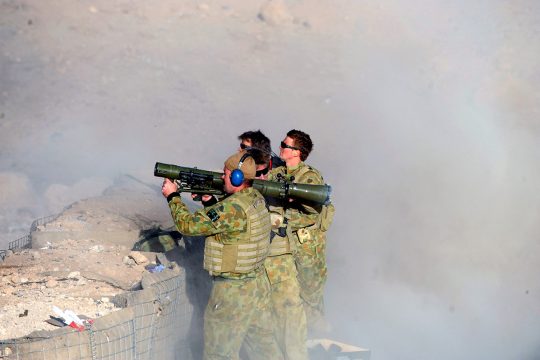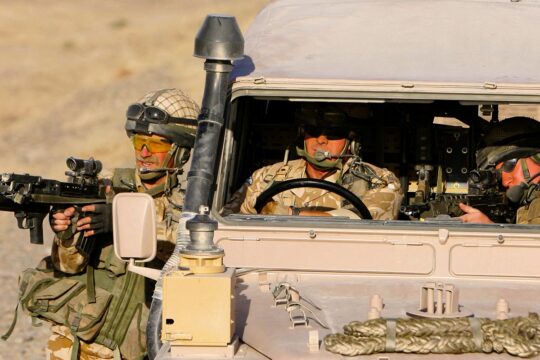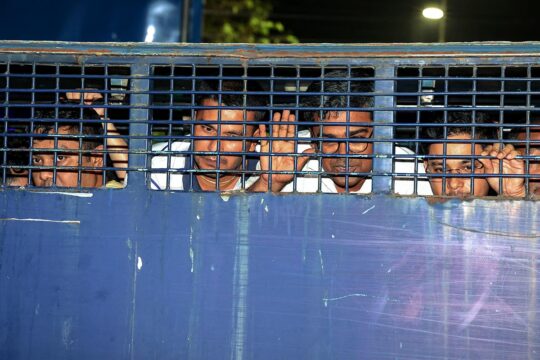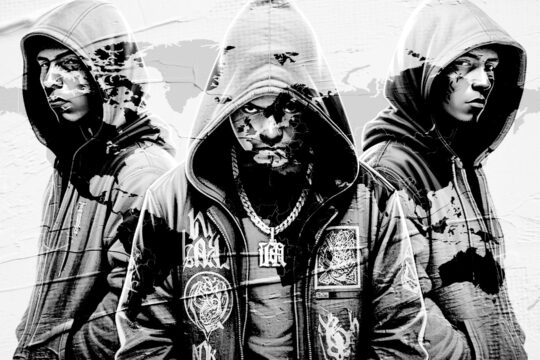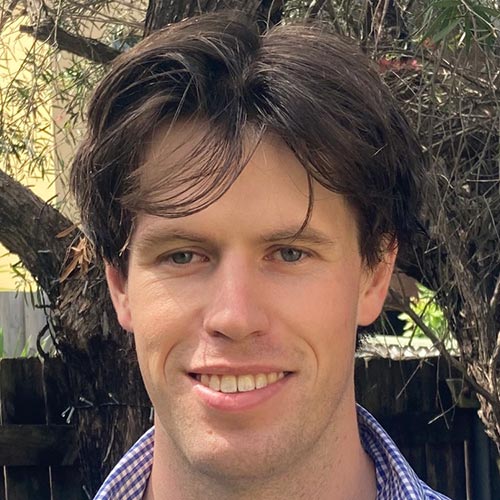Two years after the release of the Brereton Report, dissonances appear between official and public-facing responses to allegations of war crimes committed by Australian special forces in Afghanistan. In November 2020 a commission of inquiry led by Justice Paul Brereton concluded that there were grounds to believe that the country’s armed forces had committed war crimes while fighting in Afghanistan between 2005 and 2013. The Brereton report was followed by the establishment of a Special Investigator, charged with the responsibility to bring to account Australian soldiers accused of serious breaches of the laws of war, including the alleged summary execution of prisoners.
The investigation has proceeded on a largely textbook basis, based on the Rome Statute – the treaty that governs the International Criminal Court (ICC), of which Australia is a state party –, and appears likely to bring about the first war crimes prosecutions against non-Afghans in the Afghanistan conflict. But by contrast, the public-facing aspect of Australia’s war crimes saga has seen police raids on the media, whistleblower prosecutions, and a high-stakes defamation case serving as a proxy war crimes trial.
Over 40 war crimes investigations
The process which has culminated in the establishment of the Office of the Special Investigator (OSI) began from within the Defence Force. International obligations towards war crimes accountability provided the impetus for inquiries into rumours of breaches of international humanitarian law (IHL). Prior to 2002, when the ICC treaty came into force, Australia had no criminal mechanism to deal specifically with war crimes, other than outdated legislation directed at Nazi war criminals.
Two weeks ago, Chris Moraitis, the OSI’s director-general, told the Senate that his office was investigating over 40 incidents, which is more than the 36 referred for criminal investigation by Brereton Report. The OSI expects to hand over its first brief to prosecutors in the first half of next year, and, according to Moraitis, is “loudly confident” that it will be sufficient for prosecutors to bring a successful case.
Alongside the reopening of the ICC’s Afghanistan inquiry, on October 31, the Australian experience “give a little bit of new life to the Rome Statute”, says Associate Professor Emily Crawford, of the University of Sydney Law School. “It’s taken a long time, but I think it’s been demonstrated that there is a real commitment in the armed forces to actually hold perpetrators to account. It sends a really important message to the world at large,” believes Crawford.
The whistleblower trial
Outside of the announcement and release of a partially-redacted version of the Brereton Report, public consciousness of war crimes allegations against Australian soldiers has been developed almost entirely through media reports. But these reports have precipitated dramatic police raids and prosecutions.
Reporting on war crimes allegations began in earnest in 2017, a year after the commencement of the Brereton Inquiry, when the government-funded Australian Broadcasting Corporation (ABC) began a series of reports known as the ‘Afghan Files’. These reports, which included detailed accounts and shocking vision of incidents, were based on secret documents leaked by former Army legal officer David McBride. In June 2019, the ABC was raided by federal police, and a prosecution commenced against McBride for theft of Commonwealth property and breaches of the Defence Act.
Late last month, before the Australian Capital Territory Supreme Court, McBride attempted to argue a whistleblower defence. However, government lawyers made an immunity claim over elements of McBride’s evidence on national security grounds, effectively forcing McBride’s lawyers to withdraw this line of defence. The case will now proceed to a jury trial next year.
Kieran Pender, Senior Lawyer at the Australian Human Rights Law Centre, says that it is “a frankly bizarre and egregious state of affairs” that McBride is the only person thus far to be prosecuted. “The prosecution of David McBride undermines attempts to reckon with alleged war crimes in Afghanistan and sends a chilling message to others in the ADF [Australian Defence Force],” Pender says.
However, through Brereton and predecessor reports, the Defence force had already begun investigating unlawful killings in Afghanistan before McBride leaked secret documents to the press. But as Professor Melanie O’Brien, of the University of Western Australia Law School says, relying only on the publicly released elements of the Brereton Report – which redacts reference to specific events – may be insufficient for the public to properly grapple with the allegations against its soldiers. Instead, it is the viscerality and shock-value of media reports which have most enlivened public consciousness.
And concerns have been raised about the levels of transparency of Australia’s war crimes response. Writing in Opinio Juris, Fiona Martin and Kobra Moradi have drawn attention to the failure of the government to release progress reports on the implementation of post-Brereton reforms in the Defence Department, despite promises to do so. The Brereton Report itself recommended that, for Special Operations Task Group members, “whistle-blower protections … should be reinforced and promulgated” to avoid the culture of secrecy which permitted alleged war crimes to occur. In recognition of some of the problems of Australia’s public disclosure regime, the government has flagged reforms to liberalise Australia’s strict whistleblowing laws.
A Proxy War Crimes Trial?
Alongside the ABC’s reporting, separate allegations of unlawful killings were also published in the nation’s newspapers. Three leading papers – The Age, Sydney Morning Herald and The Canberra Times – published articles referring to, and eventually naming, Victoria Cross recipient Ben Roberts-Smith as being subject to investigation by the Brereton Inquiry. The newspapers alleged that, among other things, he was complicit in the unlawful killings of six Afghans. Roberts-Smith promptly proceeded to sue the three newspapers for defamation. Importantly, the publishers have attempted to defend their articles as being substantially or contextually true, effectively turning the case into a proxy war crimes trial.
In contrast to the tightly controlled procedure of a war crimes trial, the Roberts-Smith defamation case has, to some extent, played out as tabloid fodder. The vendettas and personal rivalries which consumed parts of the Special Forces were aired in public court, as were extensive details of Roberts-Smith’s private life, the collapse of his marriage, and the campaign of intimidation he was alleged to have embarked upon to suppress witness participation in the Brereton Inquiry.
For much of the time since the release of the Brereton Report, Australian public and media attention has been focused not on the process of compensation, truth and justice, but on the shocking and salacious details emerging from the Federal Court in Sydney, where the defamation case is being heard. A successful outcome for Roberts-Smith will provide public vindication that may allow some to argue that war crimes allegations were merely malicious rumours aimed at the Special Forces.
Despite the potential toxicity of the defamation case – which could impair the process of transitional justice – Professor O’Brien sees it differently: “I don’t think the publicity is a problem, it’s just a different type of case. When the Brereton Report first came out, there was a lot of shock amongst the population about it. But ultimately, these kinds of cases will open people’s eyes to the fact that, even in a professional army whose members are well-trained in the laws of war, [breaches of IHL] can still occur.”
For O’Brien, wall-to-wall media coverage of the trial makes alleged war crimes difficult to ignore or talk down, provides detail that Brereton couldn’t, and demonstrates to the public the complexities and nuances of the matters at hand. And while the Australian combination of a high-profile soldier, ongoing war crimes investigation, polarised media environment and restrictive defamation laws is unlikely to be replicated elsewhere soon, the Roberts-Smith defamation case poses interesting and important questions about the relationship between the media, war crimes investigations, and transitional justice.


